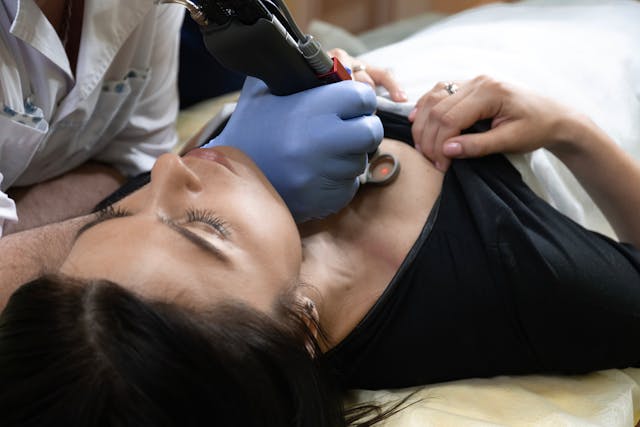Skin cancer is a very common type of cancer and there are so many cases that are diagnosed each year. Therefore it is important to have regular skin cancer screenings to detect and treat cancer early on. If you are scheduled for a skin cancer screening, we will guide you on how to prepare for it early on so that you can ensure an effective examination.
You have to first schedule an appointment at the SCCC dermatologist or a healthcare provider. You will need to choose a reputed healthcare professional that specialises in dermatology and detecting skin cancer. Some people have a family history of skin cancer or otherrisk factors so you will need to increase the frequency of screenings or start screening early on. Your medical history has to be reviewed before the appointment so that you have a good idea of any previous skin conditions you have had along with treatments or surgeries. You will need to inform the dermatologist if you have a personal or family history of skin cancer. If this is the case, you will need to inform them of the type of cancer you were diagnosed with along with the treatment and outcomes. This will help the dermatologist assess your risk factors so that the screening can be tailored to you.

It is important to carry out self-checks as well.
If you have any concerns or questions regarding skin health, you can note this down so that you can remember to have it clarified during the appointment. Some of the things you need to note are new growths, unusual growths, changes in existing moles or areas of skin irritation. This will help you address all the relevant issues so that you can receive comprehensive care from the healthcare provider. You will need to check your health insurance coverage before the screening to see if it is included in your benefits. You have to review the insurance policy so that any limitations in your coverage can be identified. This will give you an idea of deductibles regarding preventative screenings and dermatology services. You can contact the insurance provider for any clarification.

In the weeks leading up to the skin cancer screening,
You should not be exposed to the sun excessively and you will need to avoid intentional tanning. Your risk of developingskin cancer is increased with the use of sun lamps, tanning beds and prolonged sunbathing. And tanning can also interfere with the accuracy of your screening results. You need to protect your skin by wearing a high SPF preferably above 50 and seek shade during the peak sun hours of the day. Make sure that you wear protective clothing when you go outdoors. Any nail polish has to be removed from the toenails and fingernails before the full body skin examination. This is because skin cancer can develop beneath the nails. Wear comfortable clothing so that you can easily undress partially or completely. You also need to bring a list of medications that you take along with supplements and over-the-counter drugs.





